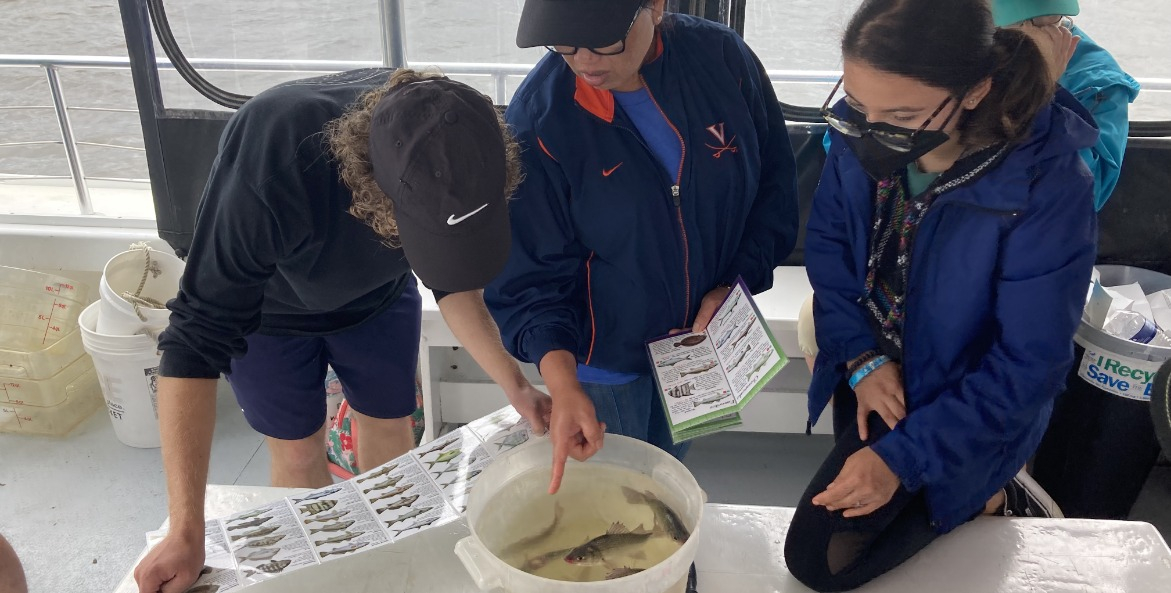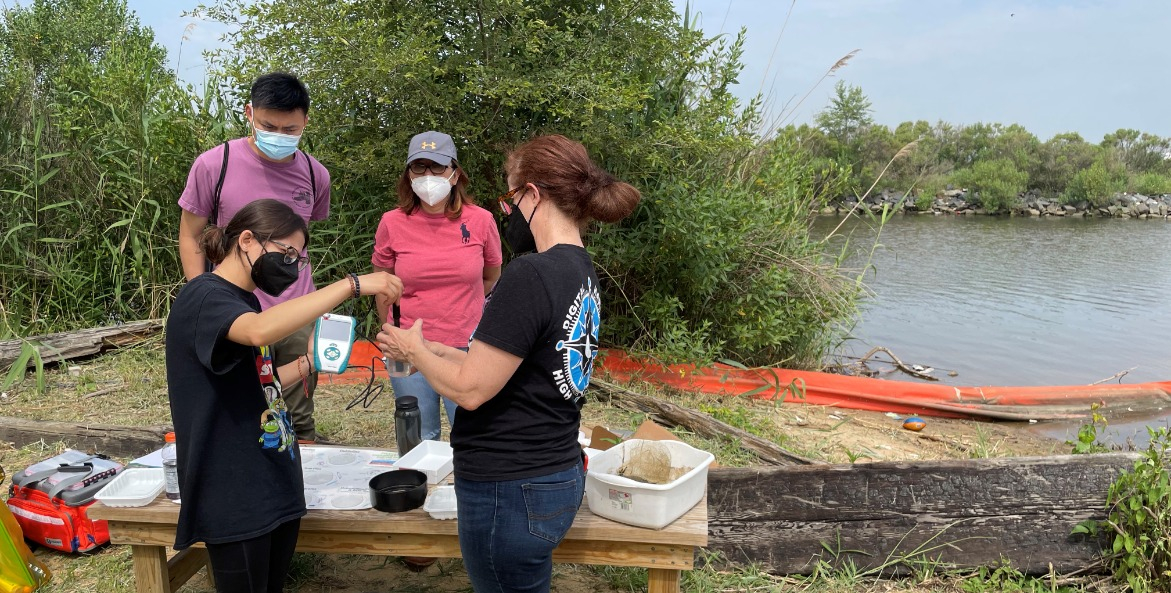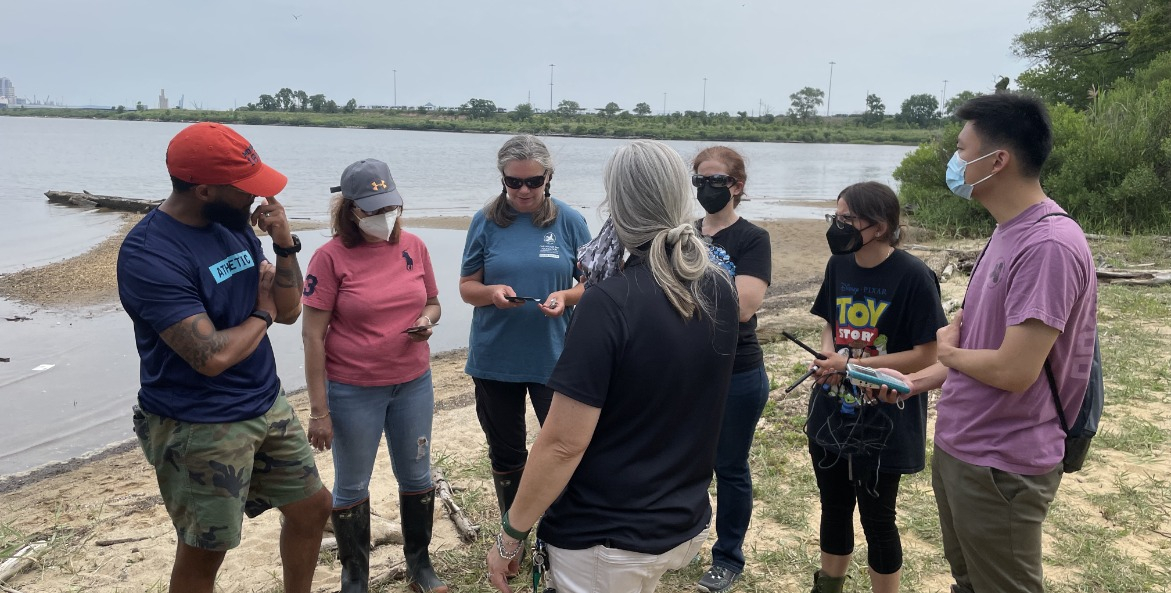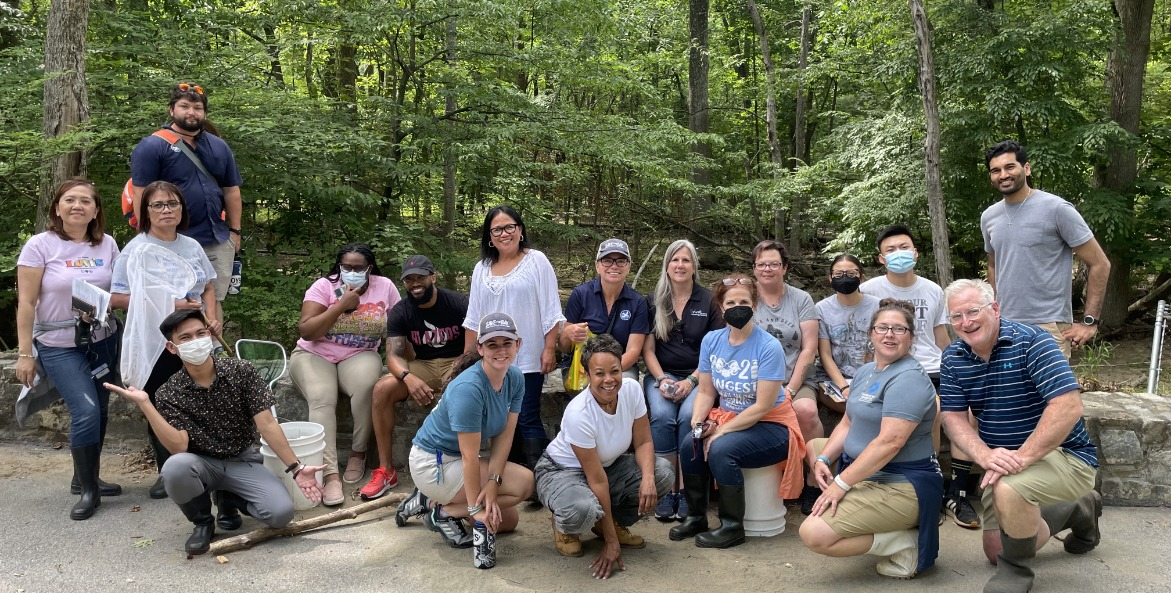Beautifully preserved green stream valleys and parks ribbon throughout the city of Baltimore. These green spaces provide many benefits to Maryland's largest city and the Chesapeake Bay—absorbing air pollution, reducing polluted water runoff, cooling urban heat islands, and providing opportunities for recreation.
Yet many students in the city never have the opportunity to go out and learn about these spaces and their urban ecosystem as a formal part of their education—even as addressing rising pollution from urban and suburban areas becomes ever more crucial for restoring the Bay and its rivers and streams.

Baltimore teachers work to identify fish caught in the harbor during the ONLI summer professional learning training.
Karen Mullin/CBF Staff
The new Baltimore Outdoor Learning Network Initiative (OLNI) aims to change that. As part of the initiative's pilot year, over 1,000 ninth-grade Baltimore biology students and their teachers, from six different schools, will head to the city's rivers and streams to test water quality this fall.
The initiative is designed to use the power and support of networks to address common barriers that make it a challenge to provide sustained environmental education for every student in Baltimore.
In particular, it can be difficult for schools to provide Meaningful Watershed Educational Experiences (MWEEs), which are the gold standard of successful environmental education in the Chesapeake Bay watershed. For example, finding adequate instructional time, the logistical challenges of getting outside, transportation funding, and a lack of capacity can all reduce access to MWEEs in urban watersheds. And no environmental education provider can serve all of Baltimore's 37 high schools alone.

During a summer professional learning training, Baltimore teachers familiarized themselves with the tools and investigations they’ll use with their students this fall.
Joanna Pi-Sunyer/Baltimore City Public Schools
OLNI faces these issues head on by bringing together multiple partners from the public and nonprofit sectors, including the Baltimore City Public Schools Department of Science, Chesapeake Bay Foundation, Living Classrooms Foundation, Carrie Murray Nature Center, and the Maryland Department of Resources. Together, they will facilitate outdoor learning this fall at three stream sites in the city—Great Kids Farm, Masonville Cove, and Gwynn's Falls Park.
While each site and organization operate independently, each of the experiences will match the same curricular expectations, including parameters and tools used for the investigation. The data students collect will therefore be comparable across the city, and students will use the stream investigation in the fall as the basis for data analysis throughout the year, as well as a student action project. Partners in the network also identified two core values that will drive each experience:
- Encourage student joy and engagement while learning about science and the local environment; and
- Ensure both teachers and students feel supported by the larger environmental education networks in the city.
After a full year of planning supported by generous funding from the Chesapeake Bay Trust and the NOAA Chesapeake Bay Watershed Education and Training Program, OLNI partners have already accomplished a lot. All 14 participating teachers attended three days of professional learning this past summer, touring each field investigation location that the students will visit this fall. In addition, the teachers and partners boarded CBF's education vessel Snow Goose to investigate the water quality and critters of Baltimore Harbor. This opportunity helped connect each field investigation location to the big picture of Bay restoration and highlighted potential student action opportunities, including oyster restoration.

During a summer professional learning training, Baltimore teachers toured each field investigation site they will be exploring with their biology students this fall.
Joanna Pi-Sunyer/Baltimore City Public Schools
The network is now engaged in a year of implementation and evaluation. Teachers and students will continue to receive guiding support as they develop their student action projects. Partners will evaluate how the process works, consider next steps, and seek additional support as the project scales up.
Providing sustained access to environmental education for all students is a complicated, but essential, task. The Baltimore OLNI project is an exciting example of how we can use the power of networks to create long-term, creative engagement and collective ownership in the solutions for our future.



